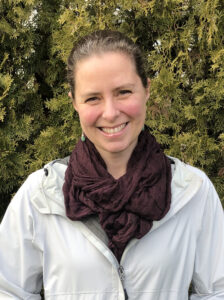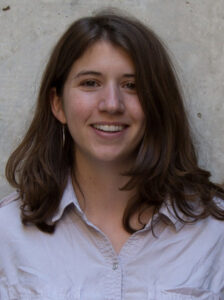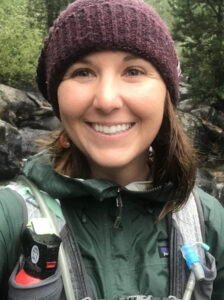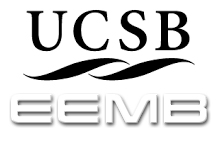Erika J. Eliason
Associate Professor
Department of Ecology, Evolution, & Marine Biology
UC Santa Barbara
Ph.D. – University of British Columbia (2011)
M.Sc. – University of British Columbia (2006)
B.Sc. – Simon Fraser University (2003)
Office: Marine Science Building 2306
Lab: Bio II 1139
email: eliason “at” ucsb.edu
Phone: 805-893-2966
Google Scholar | Orcid | ResearchGate
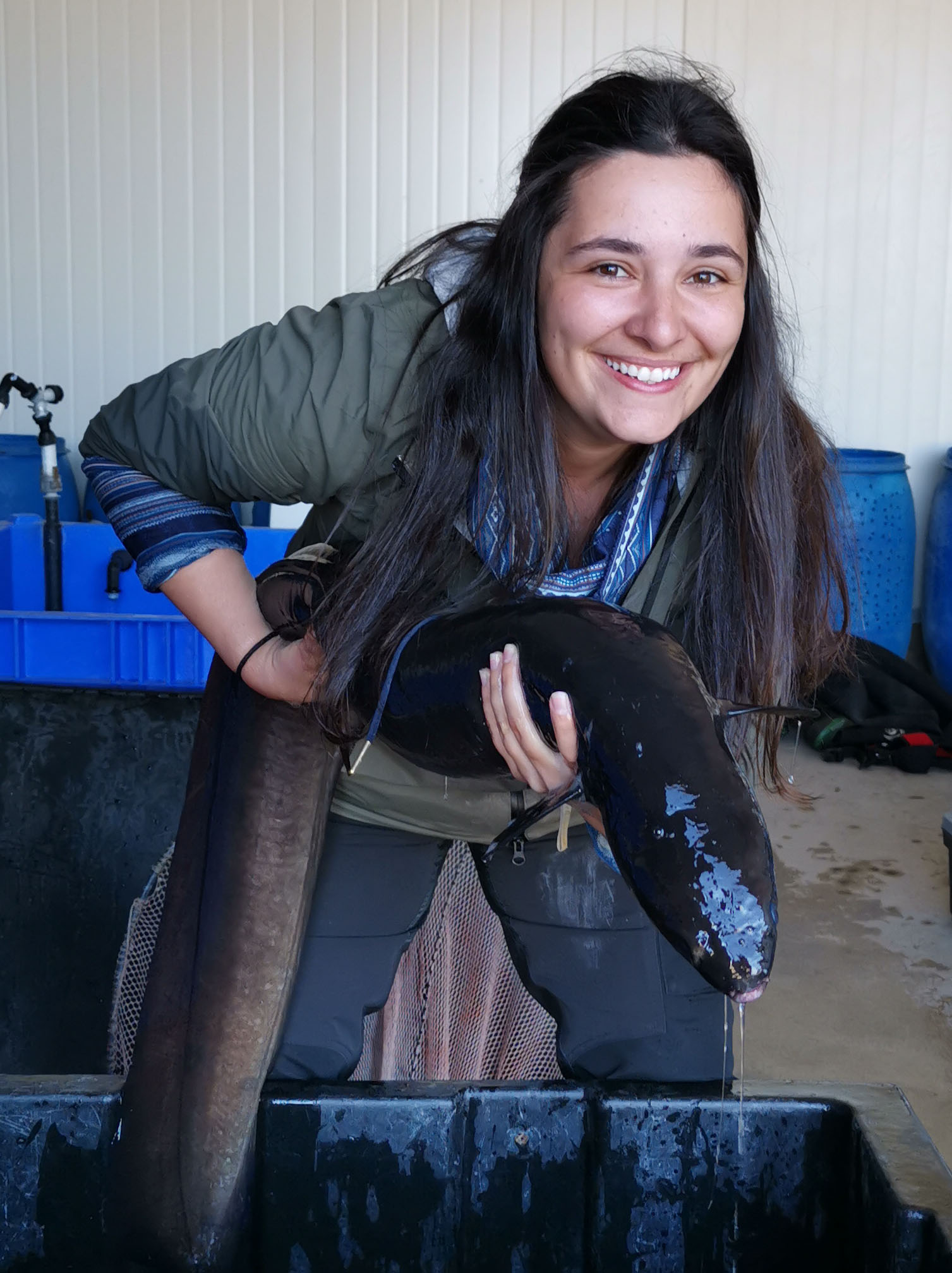
Kim Birnie-Gauvin
Postdoctoral Fellow
Kim is broadly interested in understanding the physiological factors that drive life-history strategies and survival in fish. Her work explores complex ecological questions about wild migratory fish using an integrative approach. In particular, her research links behaviour and habitat use (using a range of tracking technologies) with multiple levels of biological organization (organ, individual, and population level). Kim is also a big advocate for freshwater ecosystems (and fish of course!) and much of her research has been dedicated to studying the impacts of barriers and barrier removal on fish movement and survival. Her research in the Eliason lab will focus on intraspecific differences in thermal tolerance of sockeye and kokanee salmon, as well as investigating the passability and related energetic costs of overcoming the Big Bar Landslide in a range of Pacific salmon species.
email: kim.birnie.gauvin “at” gmail.com
Google Scholar | ResearchGate | www.kbgconserv.com
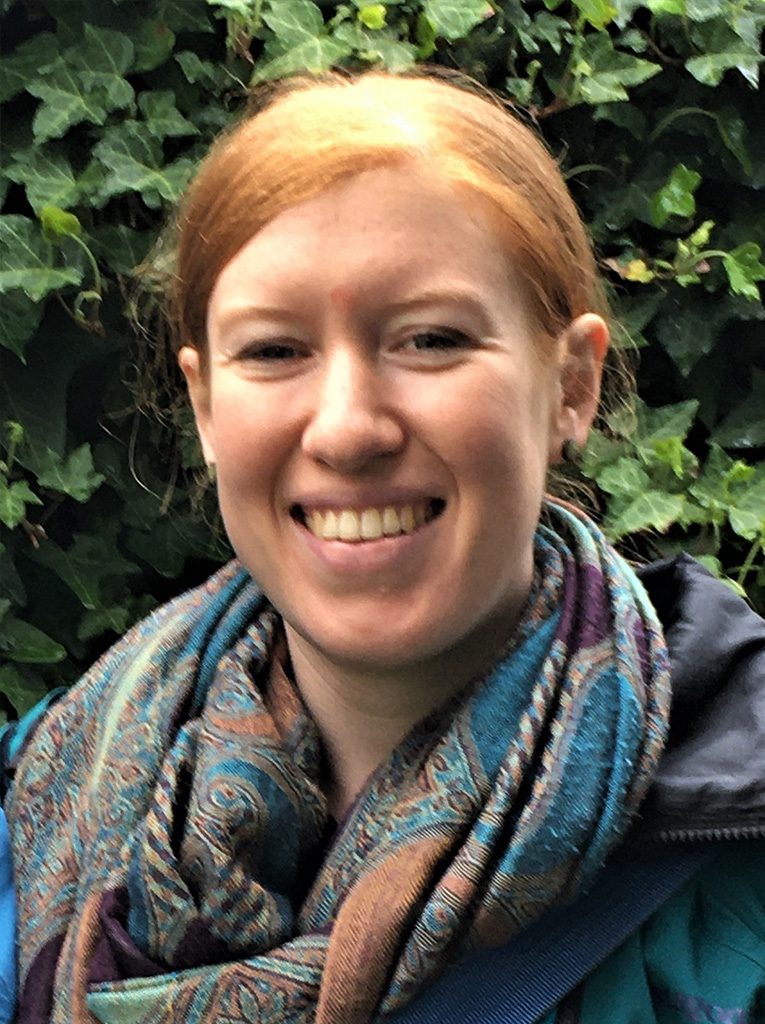
Naomi Pleizier
Postdoctoral Fellow
Naomi is interested in how stressors affect the physiology and behaviour of fishes. She is particularly interested in the mechanisms that link environmental factors to fish health and survival. Her research has focused on how environmental changes caused by barriers impact the survival of freshwater fish. Naomi hopes her research will lead to conservation solutions for aquatic ecosystems. In the Eliason Lab she plans to study the interactive effects of flow and temperature on swimming performance and ultimately the migration success of salmon, especially in the context high flow areas like Hell’s Gate and the Big Bar landslide.
email: pleizier “at” zoology.ubc.ca
Google Scholar | ResearchGate
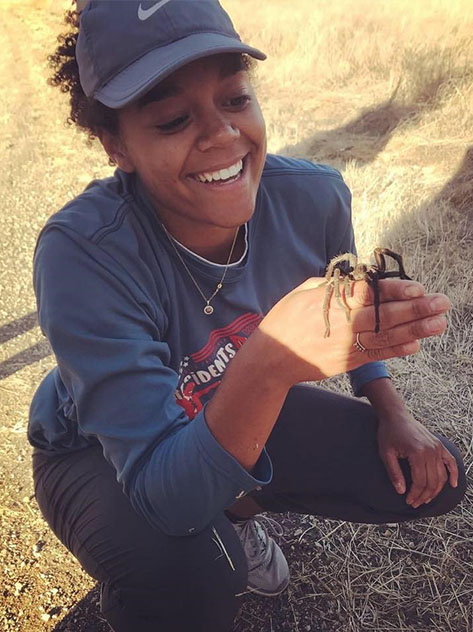
Jasmine Childress
PhD Student
Co-advised by Kevin Lafferty (USGS, UCSB)
Jasmine is broadly interested in ecological parasitology, exploring the interactions between hosts and their parasites as well as how these interactions propagate at the population, community, and ecosystem levels. Currently, she studies the San Miguel Island fox, Urocyon littoralis littoralis, that occurs within the Channel Islands National Park. There she uses traditional survey methods as well as eDNA metabarcoding to determine the spatiotemporal distribution and effects of a newly found acanthocephalan parasite of the declining fox population.
email: jchildress “at” ucsb.edu
Google Scholar | www.jncecology.com
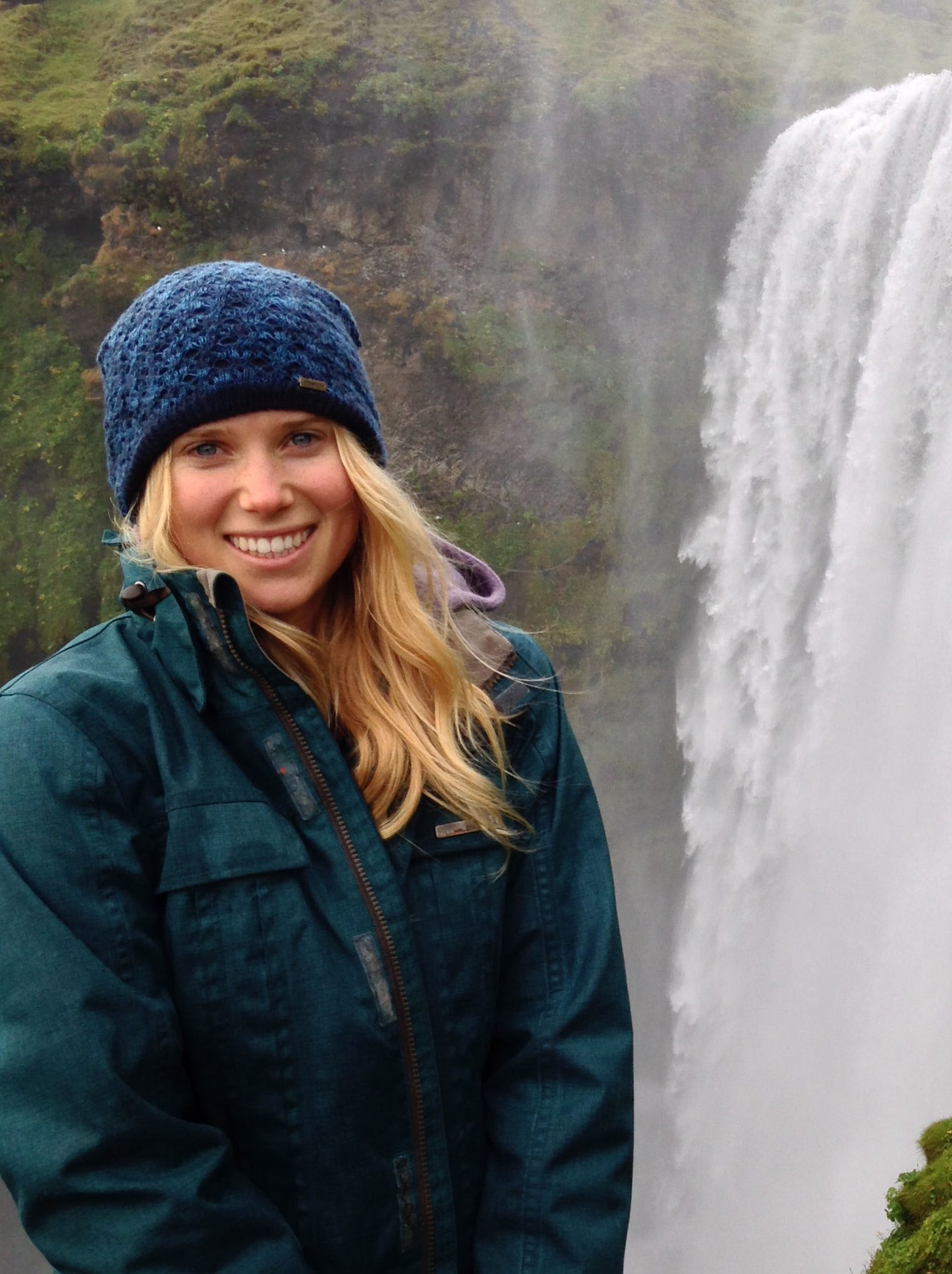
Terra Dressler
PhD Student
Co-advised by Tom Dudley (UCSB)
Terra is interested in mechanisms that allow fish populations to persist in extreme thermal and multi-stress environments. She is also interested in how time scales of exposure to multi-stressors shape interactive effects on fish performance. She is currently studying how wild rainbow trout populations in warm and highly disturbed streams near their southern range limit are able to thrive despite this species’ tendency to inhabit cold, pristine waters.
email: terra.dressler “at” lifesci.ucsb.edu
Google Scholar | ResearchGate
Emily Hardison
PhD Student
Emily is interested in the effects of diet on thermal acclimation responses. A major assumption about thermal acclimation is that an individual will always respond to a given temperature in the same way. Emily uses a local omnivorous fish (opaleye) as a model system for exploring if/how diet may alter the way fish experience and respond to changes in environmental temperature.
email: emily.hardison “at” lifesci.ucsb.edu
Google Scholar
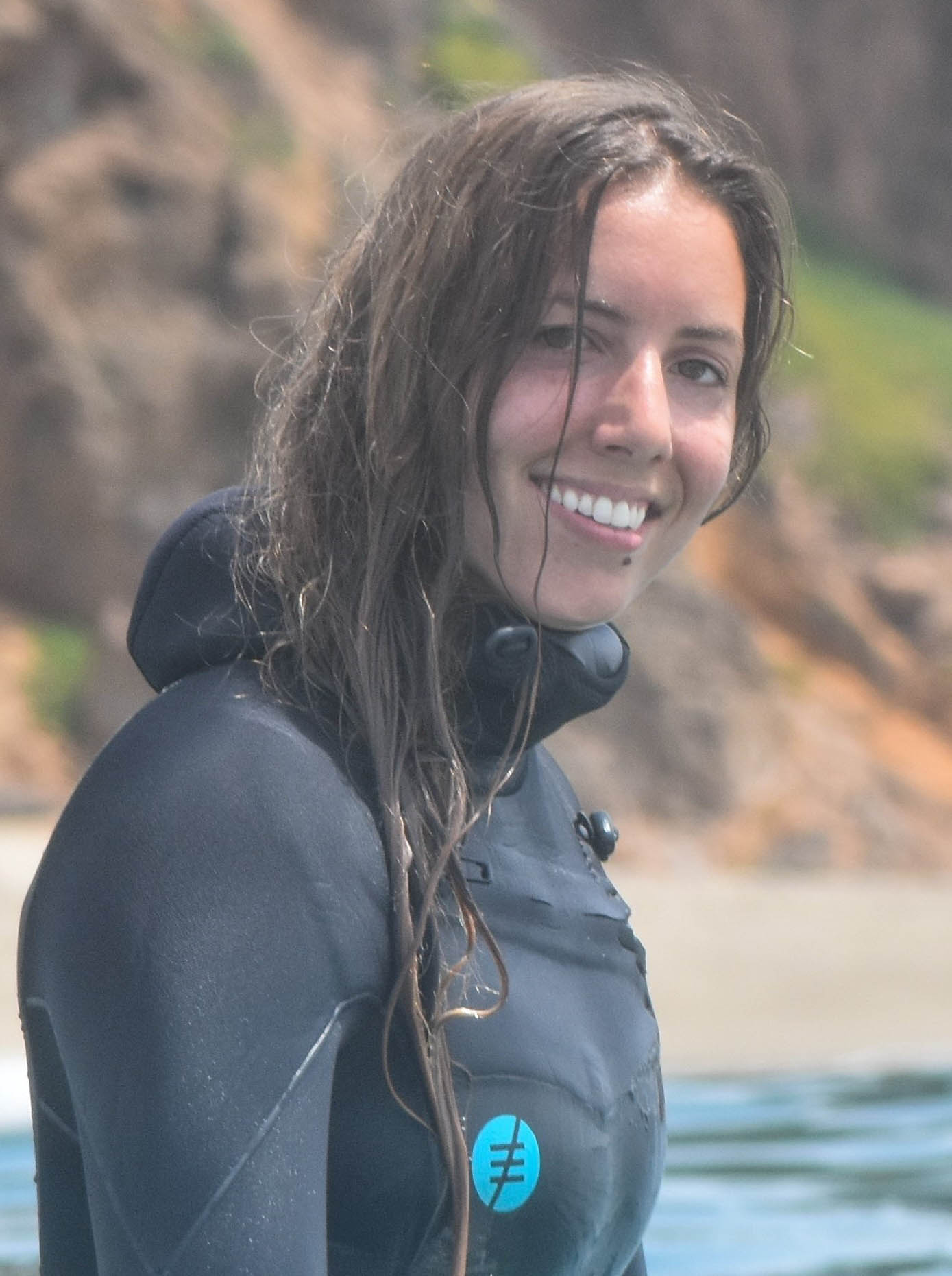
Jacey Van Wert
PhD Student
Jacey’s research interests are largely motivated by the desire to understand how anthropogenic activities impact marine ecosystems. Her research will focus on the physiological mechanisms that affect performance and behavior in marine organisms and their capacity for acclimatization and adaptation. She plans to use a combination of laboratory and field-based experiments to predict the success of ecologically important marine organisms in a rapidly changing environment.
email: jacey.vanwert “at” lifesci.ucsb.edu
Google Scholar
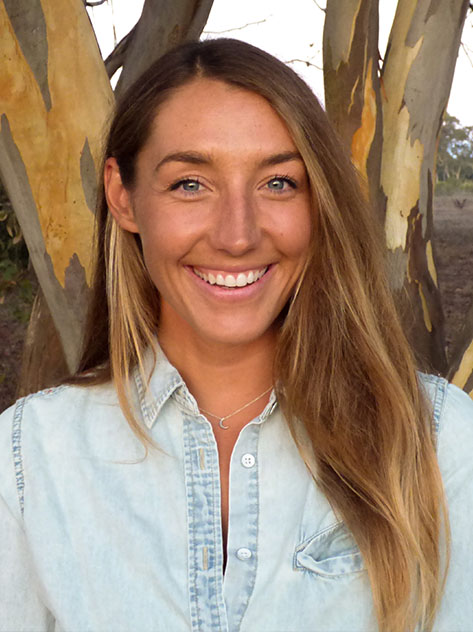
Jessica Madden
MS Student
Co-advised by Jenny Dugan (UCSB)
Jessica is interested in coastal marine ecology, particularly in the drivers of community structure and species distribution of surf zone fish. She investigates the trophic linkages between sandy beaches and adjacent fish populations, and how this connectivity and other environmental factors affect community and population dynamics of nearshore ecosystems. She is also interested in ecological shifts in response to environmental change, and is motivated to further our understanding of key species with regard to marine resource conservation and management.
email: jessicamadden “at” ucsb.edu
Madison Heard
MS Student
Madison is interested in the physiological mechanisms that allow intertidal organisms to respond to rapid changes in their environment. Her current project is focused on investigating how differing diet availabilities (single item vs a broad diet) and varying temperature regimes (static vs fluctuating temperatures) impact the cardiac thermal tolerance of the California killifish (Fundulus parvipinnis). Looking specifically at organ function (in this case the heart!) allows us to better understand the capacity organisms have for overall function and performance.
email: madisonheard “at” ucsb.edu
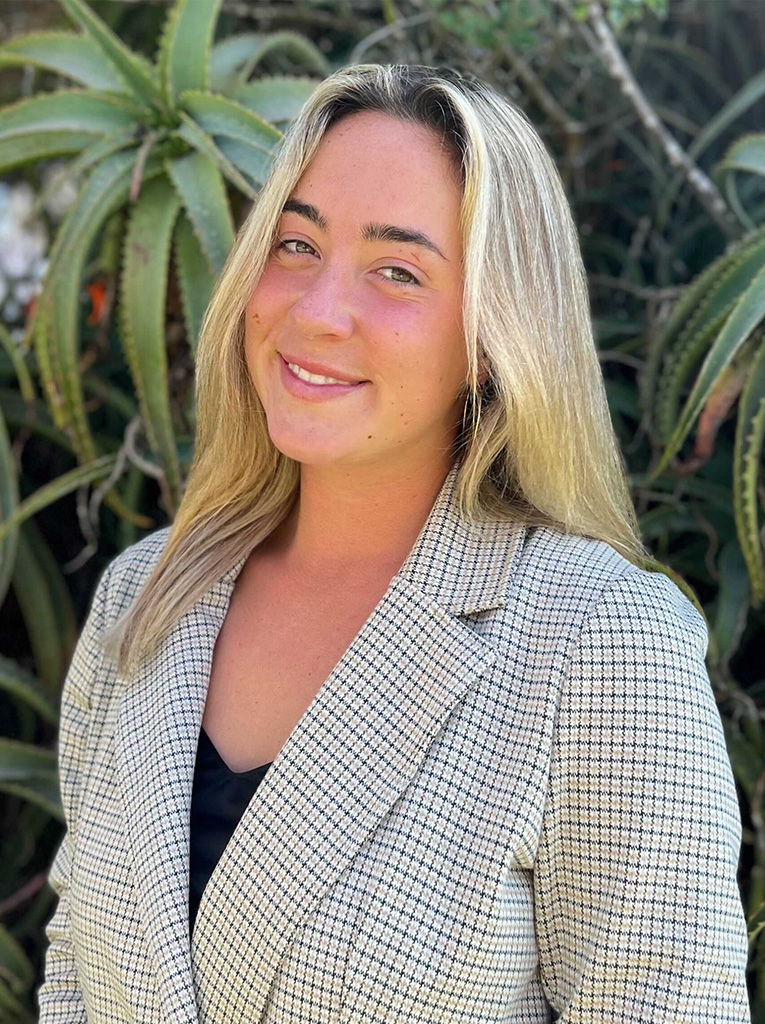
Kate Becker
Undergraduate Student
Kate is studying how brain parasites in killifish could impact their thermal tolerance.
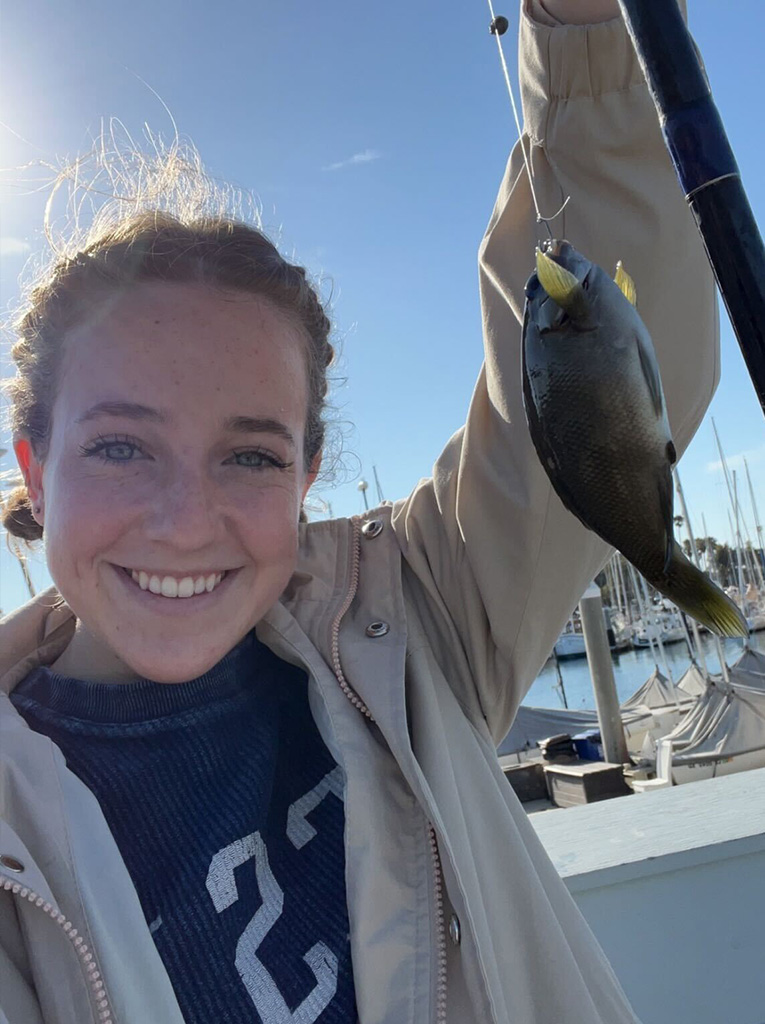
Eileen Schauerman
Undergraduate Student
Eileen is conducting a senior honors thesis investigating how diet impacts cold tolerance in opaleye.
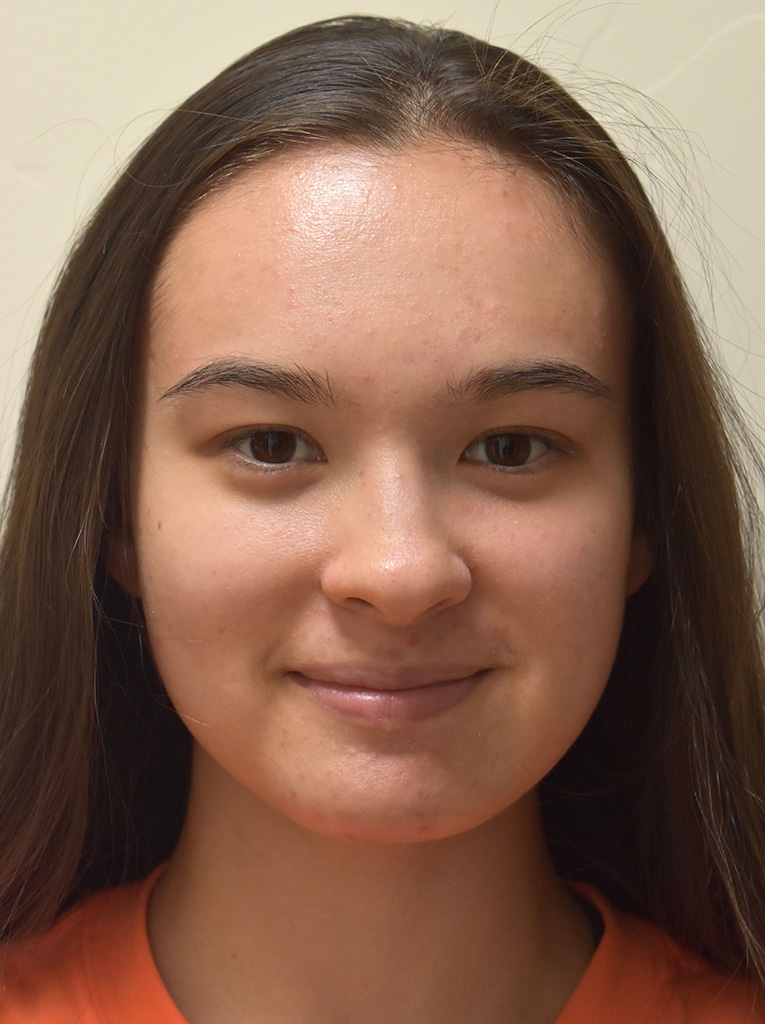
Madeleine Yung
Undergraduate Student
Madeleine is assisting with several projects in the lab, such as the impact of diet quality on performance in opaleye.
Madi Feenstra
Undergraduate Student
Madi is an undergraduate student from Santa Barbara City College studying how cardiac failure contributes to en route mortality in salmon, with support from a Schmidt Mentorship award.
Alumni

Postdoctoral Fellows
Gail Schwieterman 2020-2022
Current position: Assistant Professor at University of Maine
Alex Little 2016-2019
Current position: Assistant Professor at McMaster University
PhD Students
Krista Kraskura 2017-2022
Thesis title: Causes and consequences of body size-specific vulnerability to warming in fishes.
James Leo Loving Lichtenstein 2020
Thesis title: Animal personality shapes the outcome of species interactions and thereby the structure of ecosystems.
MSc Students
Noa Mayer (University of British Columbia, co-advised by Scott Hinch) 2021-2022
Thesis title: Thermal tolerance of Pacific salmon (Oncorhynchus spp.) Methodological and inherent variability in upper thermal tolerance limits and their use in assessing vulnerability to climate change.
Clay Steell (Carleton University, co-advised by Steven J. Cooke) 2016-2018
Thesis title: An appetite for invasion: invasive lionfish have lower costs of digestion at high temperatures and a feeding physiology that may drive their impact.
Tanya Prystay (Carleton University, co-advised by Steven J. Cooke) 2016-2018
Thesis title: Exploring the relationship between physiological performance and reproductive investment in wild fish using heart rate biologgers.
Melissa Dick (Carleton University, co-advised by Steven J. Cooke) 2014-2016
Thesis title: The physiological, behavioural, and survival consequences of two radio transmitter attachment techniques on migrating adult sockeye salmon.
Undergraduate Students
We have had the pleasure of working with over 45 talented and diverse undergraduate students.
